About this item
Caffeine and Phenylethylamine 500mg Vegan Capsules
PHENYLETHYLAMINE is for
- Stimulates the release of dopamine & norepinephrine
- Promotes positive mood & well-being
- Curbs appetite & supports weight loss
- Aides with Weight Loss
PHENYLETHYLAMINE HCL
- Mood Enhancement: PEA is often referred to as “molecule of love” due to its potential to enhance mood and induce feelings of happiness, pleasure, and euphoria. It is believed to do so by increasing the release of certain neurotransmitters such as dopamine and serotonin, which are associated with positive emotions.
- Improved Focus and Alertness: PEA may have stimulant properties that can enhance mental alertness, focus, and concentration. It is sometimes included in dietary supplements marketed for cognitive enhancement and increased productivity.
- Weight Loss: Some studies suggest that PEA may aid in weight loss by suppressing appetite and increasing metabolic rate. However, more research is needed to confirm these effects and understand the mechanisms involved.
- Potential Anti-inflammatory Effects: There is some evidence to suggest that PEA may have anti-inflammatory properties, which could potentially be beneficial for conditions characterized by inflammation, such as arthritis. However, further research is needed to better understand this potential benefit.
- Neuroprotective Effects: PEA has been investigated for its potential neuroprotective effects, particularly in relation to conditions like Parkinson’s disease and Alzheimer’s disease. It may help protect neurons from damage and promote overall brain health, but more research is necessary to confirm these effects.
- Enhanced Athletic Performance: Some athletes and bodybuilders use PEA supplements due to claims that it can improve athletic performance and endurance. However, scientific evidence supporting this claim is limited, and the safety and efficacy of PEA for this purpose are not well-established.
- Neurotransmitter Modulation: PEA may influence the levels of neurotransmitters such as dopamine and norepinephrine in the brain, which are known to play a role in attention, focus, and impulse control. ADHD is often associated with imbalances in these neurotransmitters, so PEA’s ability to modulate their levels could potentially benefit individuals with ADHD.
- Mood Regulation: PEA is sometimes referred to as a “feel-good” molecule due to its potential to enhance mood and promote feelings of happiness and well-being. Mood dysregulation is common in individuals with ADHD, and improving mood stability could indirectly help with ADHD symptoms.
- Increased Alertness and Focus: Some people report feeling more alert, focused, and mentally sharp after consuming PEA-containing supplements. While this effect may benefit individuals with ADHD by helping them concentrate better and stay on task, scientific evidence supporting this claim is limited.
Instant Energy
How do Caffeine Works?
* In our brain there is a substance called ‘adenosine’ which will only work with specific adenosine receptors. Adenosine is responsible for the energy in our body. It connects to phosphates in order to become ‘adenosine troposphere’ or ‘ATP’. ATP is the ‘energy currency of all life, and it is by breaking the bond between adenosine and its phosphates that our body releases usable energy.
* When our adenosine bonds to the adenosine receptors in our brain then, that means there is none free in the brain and means that we have no energy from our brain and we therefore get tired. * What caffeine does then is to bond with the adenosine receptors instead and this then means that they cannot take up the adenosine in the brain leaving more free energy in the brain and preventing us from getting drowsy.
* At the same time caffeine has another effect in that this action causes the pituitary gland to think there is an emergency and to therefore produce more adrenaline from the adrenal glands. Adrenaline is the hormone that is produced by our bodies as a result to threats and stressors. For example, if you saw a lion in the wild – you would start producing more adrenaline. Likewise, today if your boss starts shouting at you that results in more adrenaline being produced. This is called the fight or flight response and it means our metabolism speeds up which enables us to run faster and pump blood around the body faster. This gives us a spike in energy and performance then to deal with immediate problems, but also results in our body using up a lot of energy as it runs on overdrive and eventually crashing out.
* At the same time the pituitary glands also release dopamine. This is another chemical that has a lot of what we consider to be positive effects on the brain and the body. Dopamine is essential to the way that the brain regulates our movements. Without it we can’t move at all, but with excessive amounts we will find that we twitch a lot and bob around. Restless leg syndrome and constant fidgeting can be considered signs of having too much dopamine in our body. This is why we get twitchy after drinking large amounts of caffeine. Too much of it will also cause the heart to fluctuate which can be dangerous if you have a weak heart or you have it in large excesses
* Dopamine is also a neurotransmitter meaning that it is crucial for transferring information across synapses in the brain so that various brain areas can communicate with one another. This is highly important for memory, problem solving and motivation, and is why we can use caffeine when we are studying.
* Finally, dopamine is also used in making us feel reward and is one of our brain’s ‘feel good chemicals’ that it uses to motivate us. Dopamine is released naturally as a reward for eating food and having sex and without dopamine we feel a lack of motivation and enjoyment – while high amounts of dopamine can leave us feeling highly optimistic and motivated and give us more enjoyment out of life. This is one reason that caffeine is also highly addictive.

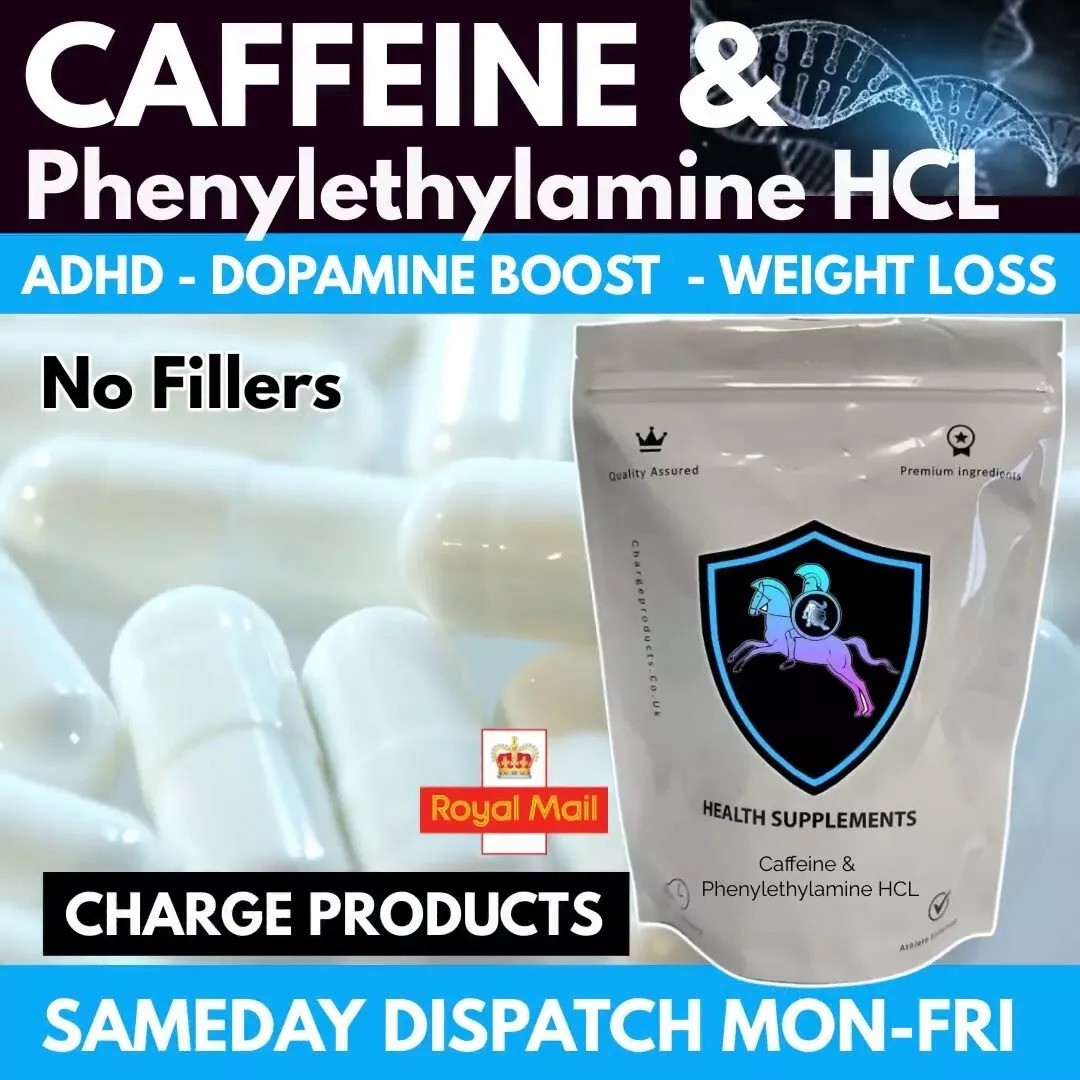
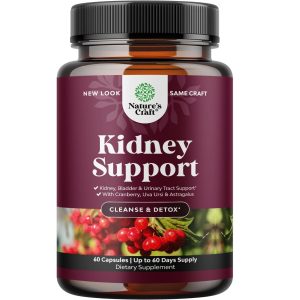
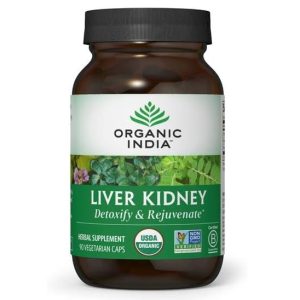
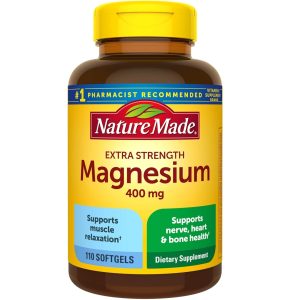
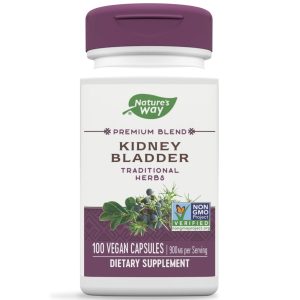

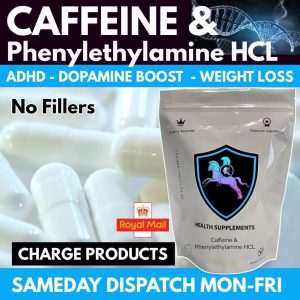
Reviews
There are no reviews yet.